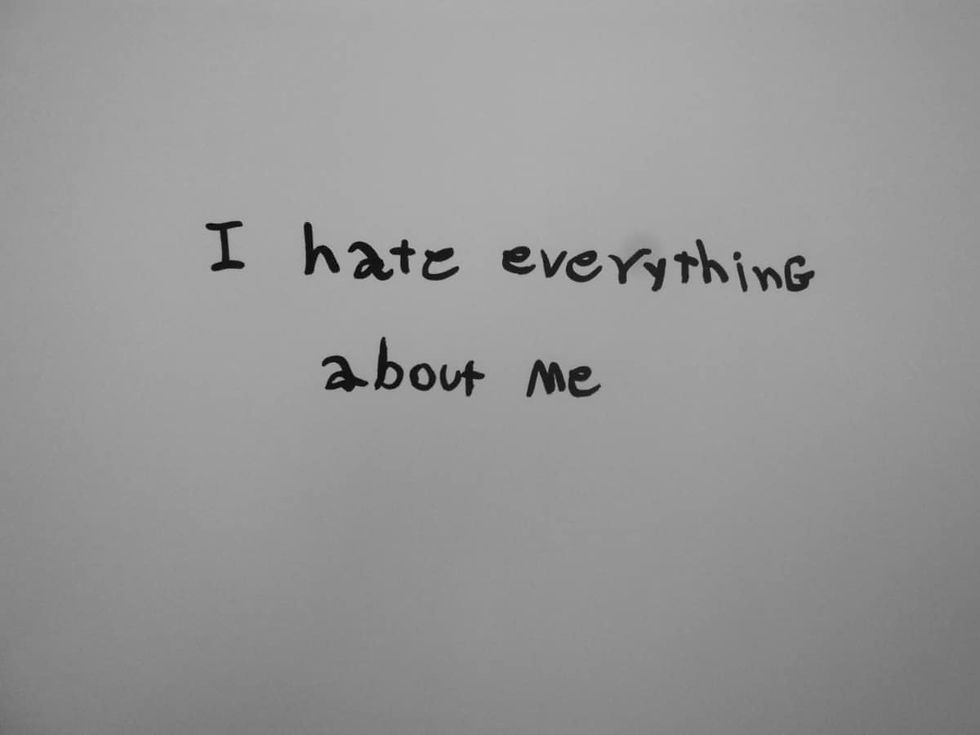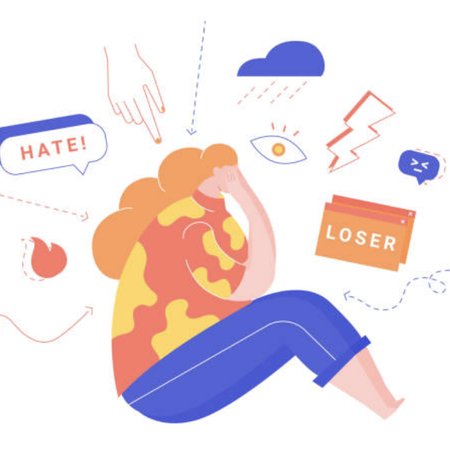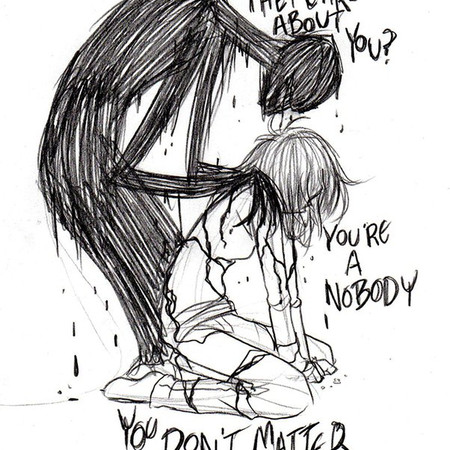
Self-Hate - Part 1
BEAUTIFUL ME (Series): Self-Hate - Part 1
Did you know we all have an inner critic? The voice that judges and offers unfavorable opinions of what we do, how we feel, how we look and everything else.
"Who do you think you are to do that?"
"You are never going to succeed no matter how hard you try."
"You’re going to mess this up just like you mess up everything else."
"You don’t deserve someone like that? You’re not pretty or handsome enough."
"I knew you would fail” “Your worthless”
"You might as well eat that dessert. You’re just going to end up eating too much anyway.
Ring any bells?
Our inner critic is persistent and aggressive in its judgement and assessment. It never relents in its goal to ensure you feel and see the worse in yourself. At times, it feels as if your own self is conspiring against you, which in reality, it is. “You are your own worst enemy” has never sounded more relatable and truer. It’s a hard pill to swallow but a lot of our limitations are the result of self-sabotage and our own feelings of self-worth. Where do these feelings come from? How do they influence our behavior? How do we peacefully co-exist with our inner critic?
Psychologists Dr. Robert and Lisa Firestone carried out research among a diverse population. They found that the most common self-critical thought among these test subjects were "You are different from other people.” The word “different” in this context has negative connotations, an underlying tone of being “less than” and “abnormal”. What is most surprising is that well-adjusted people, extremely liked in their social circles have deep-seated feelings of being an outcast or a fraud. They battle the same demons though surrounded by peers who adorn them with praise and admiration. Your inner critic can be likened to a coach, aggressively critiquing your every move and play, mapping out how you should approach the way you dress, look, engage, react and live life. It is not there to provide constructive feedback and suggestions but to undermine your sense of self, worth and belonging. Your inner critic often times sounds soothing and sympathetic all the while passively encouraging you to adapt self-destructive practices and then offering up punishment if you don’t follow through.
Contrary to what you may think it is quite common to view ourselves through our inner critic lens. However, this thought process is so engrained in us that we barely recognize we are doing it. We fail to notice the destructive voice for what it is; “our own worst enemy”, a mistake which ties back to the fact that our inner critic is us.
“I hate myself” is the second most common utterance voiced by our inner critic. Dr. Robert and Lisa Firestone in their research found that this particular expression most times originates from negative early life experiences. The way we are viewed growing up and the attitudes directed toward us has a tremendous bearing on how we see ourselves. Many of us, especially in a Caribbean household have been body shamed, mentally ridiculed and judged. It is much worse for those of us who grew up with only those experiences; no love or praise thrown into the mix; no apology or celebration. For those who have had to deal with nothing but criticisms and disapproval, the internalized hate becomes a part of their self-image. They then pass on the same hate towards their children and the “generational curse” continues. We are not trying to lay blame solely at the feet of parents but it is important to note that parents are the first line of influence for children. Their power to shape the younger generation is mightier than Thor’s hammer. However, parents are one clog in a wheel of learnt behavior and perception and they are far from perfect. “With great power, comes great responsibility” perfectly sums up the uphill battle parents face in what they perceive is beneficial to the upbringing of their children. They not only have to deal with their emotions but their kids as well and that can be overwhelming. In stressful situations and environments, parents tend to react inappropriately or critically toward their children. These reactions are often times spilled over feelings from their childhood and an internalized hatred for themselves or the situation.
Though one's childhood plays a major role in how we view ourselves, there are other factors that contribute to self-awareness and self-hatred. Our relationships with family, friends, co-workers, neighbors and even strangers have a tremendous impact on our inner critic. These relationships have the power to shape our thoughts and attitudes about self-love. It should go without saying that we should be cognizant of our circle, who we allow in our midst, who we give our time and attention. When we engage in conversations or relationships (friends, family, coworkers) we are exchanging energies, both good and bad. Those energies seep into and permeate every facet of your life, your thoughts and behavior being the most affected. You would do well to stay away from those who channel negativity.
“To stop our cycle of self-hatred and live free from imagined limitations, we must learn to challenge our inner critic”. Find out how in our next issue.
To be contd.





